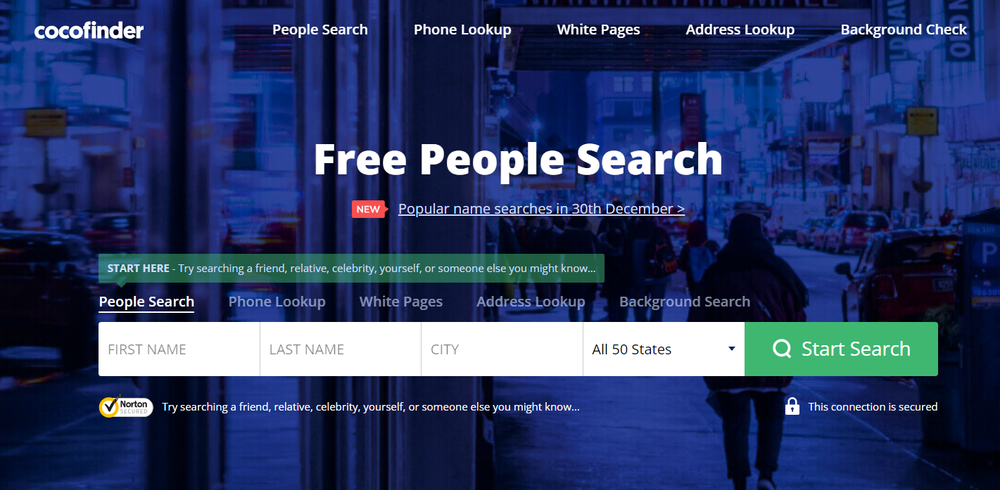In the modern era of technological advances, access to decent information regarding address might come in very handy indeed. If you are interested in reconnecting with an old acquaintance or friend, verifying property needs, neighborhood safety or information about your new neighbors, reverse address search options make the ability to get your information quickly, easy and convenient. Based on an address alone, one can unlock useful information contained in public records which then enables decisions to be made wisely.
What is Reverse Address Lookup?
Reverse address lookup is another type of search that permits you to put an address in and get a detailed amount of information that corresponds with it. Reverse address search, unlike a staple people search in which you begin with either a name or a phone number, begins with the location itself. The outcomes may incorporate:
Information about property ownership (form of ownership and who the previous and current owners are)
Addresses of contact.
Value and history of taxed property
Previous residents
Neighborhood demographics
Close amenities and other businesses
Court documents, like filings or liens on the property Public records
This information is most often drawn based on the public records systems, property databases and commercial information providers which present you with a full picture of the address in question.
Having this information, when is Reverse Address Lookup useful?
The list of possible situations when reverse address lookup may be useful is endless:
Ownership of Property Verification : You can verify the property owner it is listed before purchasing or leasing it and make sure that listed owner details correspond to owner details in the records.
Neighborhood Safety: There are some look-up tools which contain data on crime rates nearby or registered offenders, which can assist you in determining the safety in an area.
Locating Old Friends or Relatives : Reverse look up is able to provide reconnection when you have the last known address of a person.
Scouting in Advance : It is possible to know in advance about the price of property, the schools, and the amenities available.
Tenant or Neighbor Checks : Tenants and homeowners regularly use reverse address check in order to learn more about their tenants or new areas (within the law).
The mechanics of reverse address look up
Reverse address search websites collate information sources in various ways:
Government Property Records County assessors and recorders keep close information on ownership history and taxes.
Court Records : Listings that are associated with legal proceedings and lawsuits as well as the address may be found.
Commercial Data Aggregators These are composed of the public records, utilities data, and past occupancy data.
Mapping & Demographic Databases : These can be utilized where location based information is needed like statistics of the neighborhood.
After you input an address, the tool accesses these databases to give a detailed report-most cases in a few seconds.
Legal, and Privacy: The baseline Privacy considerations are to be observed, and where the police presence is an issue or is irrelevant, that should be addressed legally.
One should keep in mind that reverse address search can never be applied unethically or illegally. The data is based on the publicly available records but it has some limitations regarding usage:
No FCRA Uses: You may not use reverse address lookup on any job, rental or insurance screening.
Obey data protection laws It may be illegal to keep or distribute any personal data depending on the state or country you are in.
Confirm accuracy : The information in the public record databases can be outdated or incomplete and therefore it is always a good idea to verify findings against the other sources.
There are Advantages to using Reverse Address Lookup Tools
Time and Efficiency Speed and convenience Manual searches in county offices are slow and may take hours or days whereas online tools are fast responding in a second.
All the Data at One Location : You do not need to visit different sites to get comprehensive information, the reverse address lookup presents the information in one location.
Cost-Effective : A lot of these services provide g affordable short term passes and this makes it cost effective as compared to using a private investigator.
Secret Searches : With the majority of the platforms, you can carry out a search secretly without the property owner realizing.
Obtaining the Best Reverse Address Look Up Service
In choosing a reverse address search tool, pay attention:
Data Coverage :Select a platform that has access to properties and public records nation wide.
Ease of Use : An efficiency feature that wastes less time.
Validity: Check on the services that frequently update their databases.
Transparency : Good tools will describe where their information is supplied and how that information can be used legally.
Conclusion
The reverse address search is an effective tool of discovering information about a property, its background, and people residing there, and it all begins with a single address. From verifying ownership to safety checks in the neighborhood or reconnection with ex-lovers; it is an inexpensive, speedy, and confidential tool that could access public records data. With a reputable service and responsible use, it is possible to derive a substantial amount of actions without being in violation of the privacy law



